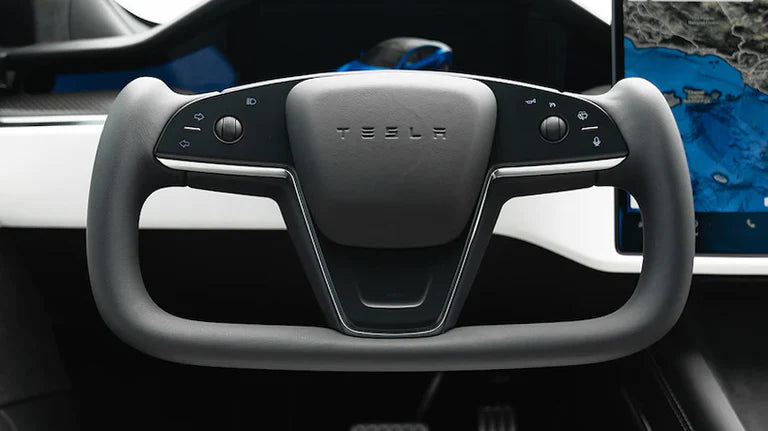Le Highway Trust Fund (HTF), principale source fédérale de financement des autoroutes et des transports en commun de notre pays, était autrefois autosuffisant grâce à la taxe fédérale sur l'essence. Mais à la mi-2025, il est au bord de la faillite, avec de lourdes conséquences pour les infrastructures, les budgets et les automobilistes américains.
⏳ Avertissement critique : une falaise qui approche à grands pas
-
Épuisement prévu d'ici mi-2028 . Des rapports récents confirment que le HTF sera à court de fonds d'ici 2028 , à moins que le Congrès n'agisse .
-
À ce stade, le HTF sera confronté à des déficits annuels de 40 milliards de dollars , avec un déficit cumulé dépassant 240 milliards de dollars jusqu’en 2033 .
-
Le CBO prévoit des perspectives encore plus sombres : les déficits grimperont à 135 milliards de dollars d’ici 2031 , et à près de 280 milliards de dollars d’ici 2034 .
📉 Pourquoi le Fonds fiduciaire a échoué — et quand
-
La taxe sur l'essence stagne
La taxe fédérale sur l’essence est fixée à 18,4 ¢/gal depuis 1993. L’inflation a réduit de moitié sa valeur réelle, ce qui compromet les recettes . -
Moins de gallons vendus
L’amélioration de l’efficacité énergétique et l’essor des véhicules électriques signifient que les conducteurs achètent moins d’essence, ce qui a un impact sur les flux de revenus . -
Dépenses excessives
Les dépenses du FASS dépassent chaque année les recettes. Au cours de l'exercice 2024, les dépenses ont atteint 70,6 milliards de dollars, tandis que les recettes n'étaient que de 42,5 milliards de dollars , creusant ainsi le déficit structurel . -
Plans de sauvetage fédéraux
Depuis 2008, le Congrès a injecté 275 milliards de dollars dans le fonds général, masquant ainsi le déficit structurel .
💸 Le coût pour vous
-
Sans réapprovisionnement, les départements des transports des États seront confrontés à des réductions ou à des retards dans les projets clés d'autoroutes et de transports en commun .
-
La détérioration des infrastructures pourrait coûter aux usagers des milliers d’heures et des milliards de dollars en productivité , et éroder la compétitivité des États-Unis, déjà classés 17e au niveau mondial en matière de qualité des routes. .
-
Les économies locales et la création d’emplois sont menacées par la diminution du financement fédéral.
🛣 Trois chemins vers l'avenir
Selon des groupes de réflexion comme Taxpayers for Common Sense, il existe trois options :
-
Augmenter les transferts de fonds généraux (essentiellement plus d’emprunts fédéraux) – une mesure insoutenable et injuste.
-
Augmenter les frais d’utilisation — via une taxe sur l’essence indexée, un péage, des frais d’utilisation basés sur le kilométrage (VMT) ou des frais pour les véhicules électriques.
-
Réduire les dépenses , ce qui signifie moins d’élargissements d’autoroutes et une priorisation plus stricte .
🔧 Ce que le Congrès devrait prendre en considération
-
Indexer la taxe sur l’essence sur l’inflation (par exemple, en l’augmentant à environ 40 ¢/gal aujourd’hui).
-
Développer des frais d’utilisation modernes comme le VMT ou le péage routier pour plus d’équité.
-
Appliquez des frais ciblés sur les véhicules électriques pendant que des réformes de tarification plus larges sont mises en place.
-
Impliquer les parties prenantes de toutes les régions et les usagers de la route, et pas seulement les lobbyistes des autoroutes nationales, qui réclament déjà 400 milliards de dollars pour la période 2026-2031, alors que les recettes sont plafonnées à 190 milliards de dollars .
✅ Conclusion : Un bilan des infrastructures est attendu depuis longtemps
L'insolvabilité du Fonds fiduciaire pour les autoroutes n'est pas une menace lointaine : c'est une réalité financière aux implications majeures pour la mobilité et la sécurité nationales. Les décideurs politiques doivent cesser de dissimuler le problème avec des plans de sauvetage des fonds généraux et prendre des mesures audacieuses et transparentes :
-
Adapter les frais d’utilisation à l’économie actuelle.
-
Liez les revenus à l’utilisation.
-
Soyez stratégique dans vos investissements dans les routes et les transports en commun.
Sans réforme structurelle, les Américains peuvent s'attendre à des trajets domicile-travail plus longs, des réseaux plus lents et des routes en mauvais état – une ironie pour un pays bâti sur ses autoroutes. Il est temps de réformer le modèle de financement – et celui-ci doit être équitable, tourné vers l'avenir et adapté aux défis des transports du XXIe siècle.
Lecture recommandée : Comprendre les incitations fiscales de la loi sur la réduction de l'inflation (IRA) pour les véhicules électriques et l'énergie propre








Partager:
Autonomie vs. puissance : qu'est-ce qui compte vraiment dans un SUV électrique de luxe ?
Quelle est la distance parcourue par une Ford Mustang Mach-E avec une charge complète ?